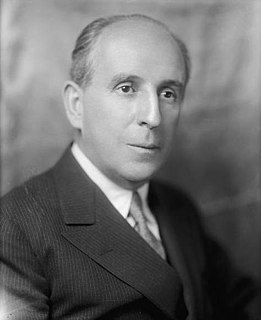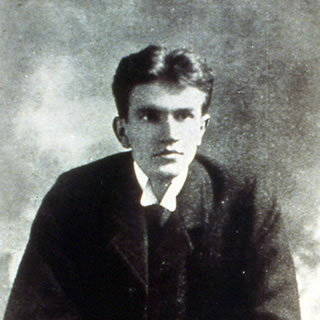A Quote by Larry Trask
In the ninth and tenth centuries the Vikings invaded Britain from Scandinavia and settled in large numbers. Their language, which we call Old Norse, was at least partly comprehensible to the English, who did not hesitate to take over hundreds of words from it: skirt, window, scrub, sky, give, hit, kick, scatter, scrape, skill, scowl, score, fellow, want, skin, knife, law, happy, ugly, wrong and even the pronouns they and them.
Quote Topics
Britain
Call
Centuries
Did
English
Even
Fellow
Give
Happy
Hesitate
Hit
Hundreds
Invaded
Kick
Knife
Language
Large
Large Numbers
Law
Least
Ninth
Norse
Numbers
Old
Over
Partly
Pronouns
Scandinavia
Scatter
Score
Scrape
Scrub
Settled
Skill
Skin
Skirt
Sky
Take
Tenth
Them
Ugly
Vikings
Want
Which
Window
Words
Wrong
Related Quotes
Thus, it comes to pass, that a certain room in a certain old hall, where a certain bad lord, baronet, knight, or gentleman, shot himself, has certain planks in the floor from which the blood will not be taken out. You may scrape and scrape, as the present owner has done, or plane and plane, as his father did, or scrub and scrub, as his grandfather did, or burn and burn with strong acids, as his great-grandfather did, but, there the blood will still be - no redder and no paler - no more and no less - always just the same.
I have a funny story to tell about English and how I came to fall in love with the language. I was desperate to fit in and spoke English all the time. Trouble was, in my household it was a no-no to speak English because somehow it is disrespectful to call parents and grandparents "you" - impersonal pronouns are offensive in Vietnamese.
Part of what makes a language 'alive' is its constant evolution. I would hate to think Britain would ever emulate France, where they actually have a learned faculty whose job it is to attempt to prevent the incursion of foreign words into the language. I love editing Harry with Arthur Levine, my American editor-the differences between 'British English' (of which there must be at least 200 versions) and 'American English' (ditto!) are a source of constant interest and amusement to me.
We as a people seem to be losing all sense of respect for ourselves and our fellow men, with the result that in a thoroughly intolerant attitude we hesitate not a minute to secure an organized minority, or even a majority, to attempt by resolution or law to impose our will on a large body of people in matters where no moral wrong is involved and where liberty is curtailed.
When you want to take over a city, you have to destroy the illusion of safety it provides. You have to hit the large well-protected establishments, find the powerful people who run them and are viewed as invincible, and kill them. You want to destroy the morale first. Once the people's resolve is gone and everyone is scared for their own skin, the city is yours.
People take it for granted that the physical world is both ordered and intelligible. The underlying order in nature - the laws of physics - are simply accepted as given, as brute facts. Nobody asks where they came from; at least not in polite company. However, even the most atheistic scientist accepts as an act of faith that the universe is not absurd, that there is a rational basis to physical existence manifested as law-like order in nature that is at least partly comprehensible to us. So science can proceed only if the scientist adopts an essentially theological worldview.
There are some people that aren't into all the words. There are some people who would have you not use certain words. Yeah, there are 400,000 words in the English language, and there are seven of them that you can't say on television. What a ratio that is. 399,993 to seven. They must really be bad. They'd have to be outrageous, to be separated from a group that large. All of you over here, you seven. Bad words. That's what they told us they were, remember? 'That's a bad word.' You know bad words. Bad thoughts. Bad intentions.
His scowl returned. "Why, if they're supposed to be Greek, are all of them speaking with an English accent?" She laughed. "Didn't you know that British is, like, the universal 'foreign' language in Hollywood? They use it in any movie where they want to have a foreign feel to it, regardless of where it's set
All people in the world - who are not hermits or mutes - speak words. They speak different languages, but they speak words. They say, "How are you" or "I'm not feeling well" all over the world. These common words - these common elements that we have between us - the writer has to take some verbs and nouns and pronouns and adjectives and adverbs and arrange them in a way that sound fresh.































